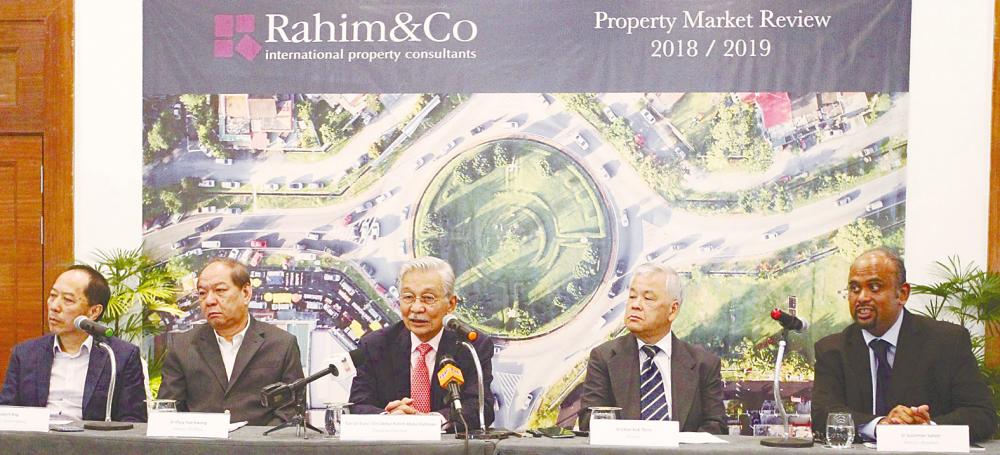KUALA LUMPUR: The office sector, which saw a 20% decline in asking rents last year, is expected to remain flat for more than a year due to pressure from incoming supply, said Rahim & Co International Sdn Bhd.
Director of research Sulaiman Akhmady Mohd Saheh said asking rents fell 20% last year while effective rents fell 8-10%, resulting in yield compression whereby some office buildings are now getting yields of less than 5%.
“There was a big gap in terms of landlords’ expectations compared with what tenants are willing to pay. It is that asking price that has seen the huge drop. But actual market transactions especially for KLCC and established areas, did also see some drop because of vacancy rates – that’s one pressure – and the prolonged rent-free period,” he told reporters at a briefing on the Malaysian property market yesterday.
However, he said the decline will plateau off as tenants weigh the costs of relocating although they will still negotiate for lower rents.
“In terms of market movement, the rental drop is seen more in Grade B1 and Grade A, newer office buildings. But the older, established, better-than-average buildings, rentals for those buildings are actually holding up. It’s an economics of alternative,” he added.
Sulaiman said the office market will take more than a year to pick up due to incoming supply and the global economic situation. At present, there are 18 million sq ft of incoming office space of which 12 million sq ft are being constructed.
Based on historical average take-up rate of office space of 3 million sq ft per year, it would take about three to four years for the market to absorb the 12 million sq ft of incoming supply.
Rahim & Co executive chairman Tan Sri Abdul Rahim Abdul Rahman said the overall property market is expected to remain flat this year as the government continues to implement changes to the property market.
“2019 will also continue to be a buyer’s market as not only is there an abundance of readily available properties but also a wider range of financial aid and schemes that are geared for housing ownership. Though it seems to be getting further out of reach, the dream to own a home is still attainable but a smarter strategy and planning is required in this day and age,” he said.
Sulaiman said the residential market will remain slow for another one to two years due to affordability issues, which means transactions would depend on effective income growth.
However, Abdul Rahim believes it will start to pick up in one year, as the downtrend has already slowed and trade tensions should be resolved by then. “The trade war between the US and China is being negotiated. I’m sure both China and the US want it to be settled and I think it will be settled ... I think both China and the US are responsible countries,” he said.
“On the national side, the government has to be given time to settle down and I think by that time, they should settle down. In fact, government has introduced policies and so on, including property policies that are logical. They have just formed the National Housing Policy and if everybody cooperates including developers, GLCs and so on, there’s no reason that these policies shouldn’t work. I think 12 months is a logical period for us to expect the new government to function,” he added.














